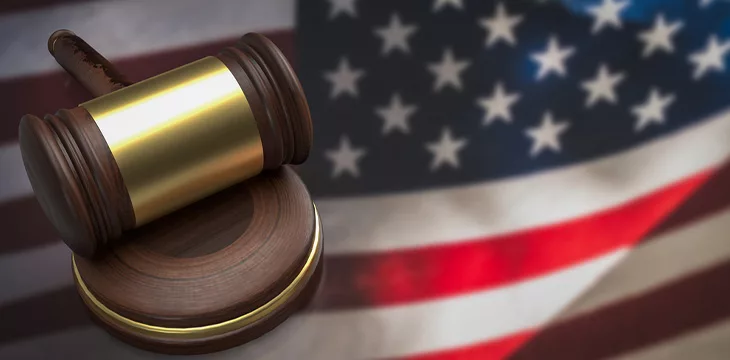|
Getting your Trinity Audio player ready...
|
The U.S. Securities and Exchange Commission (SEC) has said that a judge, not a jury, should determine whether certain digital assets are securities in its case against Terraform Labs and its co-founder Do Kwon due to there being “no genuine dispute of material fact.”
In a December 4 filing with the U.S. District Court for the Southern District of New York, the U.S. SEC argued that the issue of whether the digital assets offered and sold by Terraform Labs are securities “is a legal question to be determined by Court, not a factual question for the jury.”
Terraform Labs collapsed in May 2022 when its TerraUSD (UST) algorithmic stablecoin lost its peg to the U.S. dollar, leading to the printing of more of the company’s native token, LUNA, in an attempt to prop up UST. This, in turn, eventually led to a crash in LUNA, and the whole Terra ecosystem came tumbling down, with an estimated $60 billion being wiped out of the digital asset space.
The SEC sued Terraform and its disgraced co-founder Do Kwon in February 2023, accusing them of orchestrating a “fraudulent scheme” and violating securities laws through the sale of unregistered securities.
Under current law, the Howey Test is used to determine whether an asset is a security, which is the case if: it is an investment of money; in a common enterprise; with an expectation of profits solely from the efforts of others.
“There is no genuine dispute of material fact that Defendants’ crypto asset offerings involved an investment of money, in a common enterprise, with an expectation of profit to be derived from Defendants’ efforts,” said the SEC in its Monday filing. “While the Court may submit questions to the jury to resolve factual disputes as to the underlying elements…, there are no such disputes here.”
This latest SEC filing supports the regulator’s October motion for summary judgment, an application that can be brought during proceedings if one party believes that it has an overwhelmingly strong case.
The Terraform case so far
The SEC filed its lawsuit in February, stating:
“From at least April 2018 through May 2022…Terraform and Kwon offered and sold crypto asset securities in unregistered transactions and perpetrated a fraudulent scheme that led to the loss of at least $40 billion of market value, including devastating losses for U.S. retail and institutional investors.”
By October 27, the regulator felt comfortable enough with the facts to file its motion for a summary judgment, saying it sees no need for a lengthy trial as “the evidence that establishes Defendants’ violations is clear, undisputed, and overwhelming.”
However, the same day, Terraform and Do Kwon filed their summary judgment motion, requesting that the court throw out the case. The filing claimed the regulator had failed to prove that the company or its founder did anything wrong.
“After two years of investigation, the completion of a discovery period that resulted in the taking of more than 20 depositions, and the exchange of over two million pages of documents and data, the SEC is evidentiarily no closer to proving that the Defendants did anything wrong,” wrote lawyers for Terraform and Kwon.
The pair had hoped to have the SEC’s case dismissed in August after the controversial partial ruling in the SEC’s case against Ripple, in which the court found that XRP sold on exchanges via programmatic sales were not securities because the buyer could not know whether their money went to Ripple or any other third party.
However, the presiding judge in the Terraform case, Judge Jed Rakoff, quickly put paid to the hopes of this argument flying.
“Howey makes no such distinction between purchasers,” said Rakoff in a ruling two months after the Ripple decision. Rakoff rejected the court’s approach as inconsistent with the Howey test and suggested that secondary sales can amount to illegal securities transactions. As a result, the lawsuit against Kwon and Terraform proceeded.
Terraform, Kwon, and the SEC continue to await Judge Rakoff’s decisions on the summary judgment motions. But this is not the only crucial decision Kwon is awaiting.
On November 24, the Higher Court in Montenegro approved requests by South Korean and U.S. authorities to extradite Kwon, who is currently in detention in Montenegro. It will now be up to Montenegro’s Minister of Justice to decide which country gets to prosecute the disgraced co-founder of Terraform Labs first.
Watch: Time to define regulation and law with the BSV Blockchain

 07-11-2025
07-11-2025 





